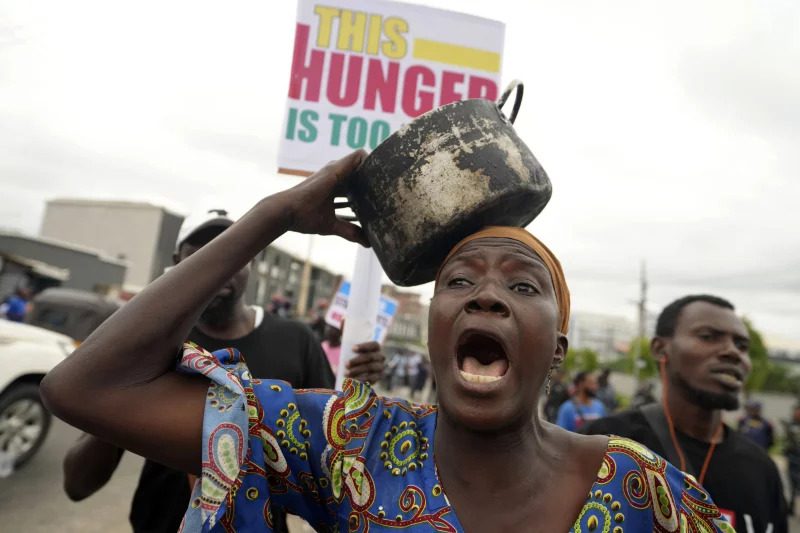Economic Issues
Nigeria’s Struggle with Economic Hardship and Insecurity: A Nation at a Crossroads -By Sa’adatu Ahmed
In large parts of the country, especially the northern and middle belt regions, violence from armed groups, bandits, and insurgents remains high. This insecurity not only costs lives but disrupts agriculture — an essential livelihood for many Nigerians — thereby reinforcing the cycle of economic instability and food scarcity. Reports of renewed clashes between insurgent factions have further worsened the humanitarian situation in affected regions.

One of the most pressing challenges facing Nigeria today is the twin crisis of economic hardship and soaring inflation, which together are eroding the livelihoods of ordinary Nigerians and heightening social tensions. Over recent years, the country’s currency, the naira, has undergone significant devaluation; this has, in turn, driven up the cost of living and reduced purchasing power for broad segments of the population. At the same time, food insecurity has reached alarming proportions, with reports indicating that around 33 million Nigerians face acute food insecurity in 2025.
These economic challenges are compounded by fiscal decisions that have raised concerns among economists and civil society. Government borrowing has surged dramatically since mid-2023, driving up the debt servicing burden and reducing fiscal room for investment in essential public services such as health, education and infrastructure. As spending on capital investment declines and more revenue is devoted to recurrent costs and debt repayment, the gap between rising revenues and actual improvements in people’s lives becomes increasingly stark.
In parallel with the economic strain, Nigeria continues to grapple with severe security challenges. In large parts of the country, especially the northern and middle belt regions, violence from armed groups, bandits, and insurgents remains high. This insecurity not only costs lives but disrupts agriculture — an essential livelihood for many Nigerians — thereby reinforcing the cycle of economic instability and food scarcity. Reports of renewed clashes between insurgent factions have further worsened the humanitarian situation in affected regions.
The combined effect of economic strain and insecurity is that many Nigerians are caught in a trap: as basic necessities become more expensive, the safety net decreases, and the ability of households to manage shocks diminishes. Rising food prices, transport costs, and worsening public services mean that more people are vulnerable. The erosion of resilience is particularly dangerous in a country with a large young population and structural unemployment, where frustrations can easily turn into social unrest.
Corruption remains another deep-rooted and persistent problem that aggravates these issues. Officials in the anti-corruption agency recently remarked that resources are often paid out with nothing to show for them and that manipulation of the judicial process helps perpetrators evade accountability. When governance is weak, public trust erodes, and efforts to implement reforms or invest in development become harder to sustain. The interplay between corruption, weak public service delivery and economic hardship creates a feedback loop that undermines progress and discourages investment.
Sa’adatu Ahmed Student of mass communication Kashim Ibrahim University, Maiduguri.










